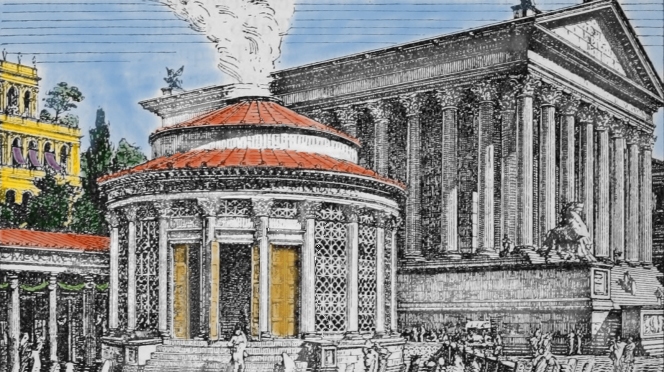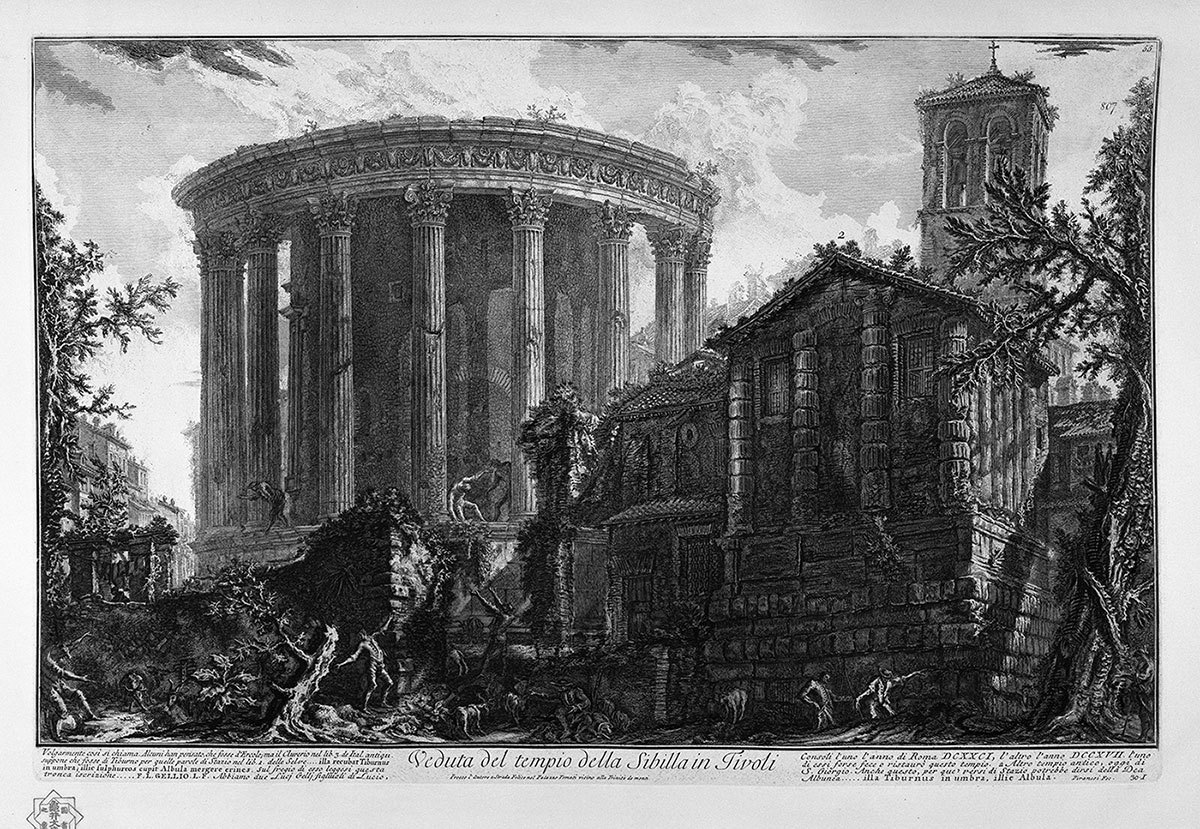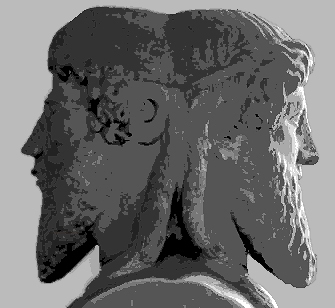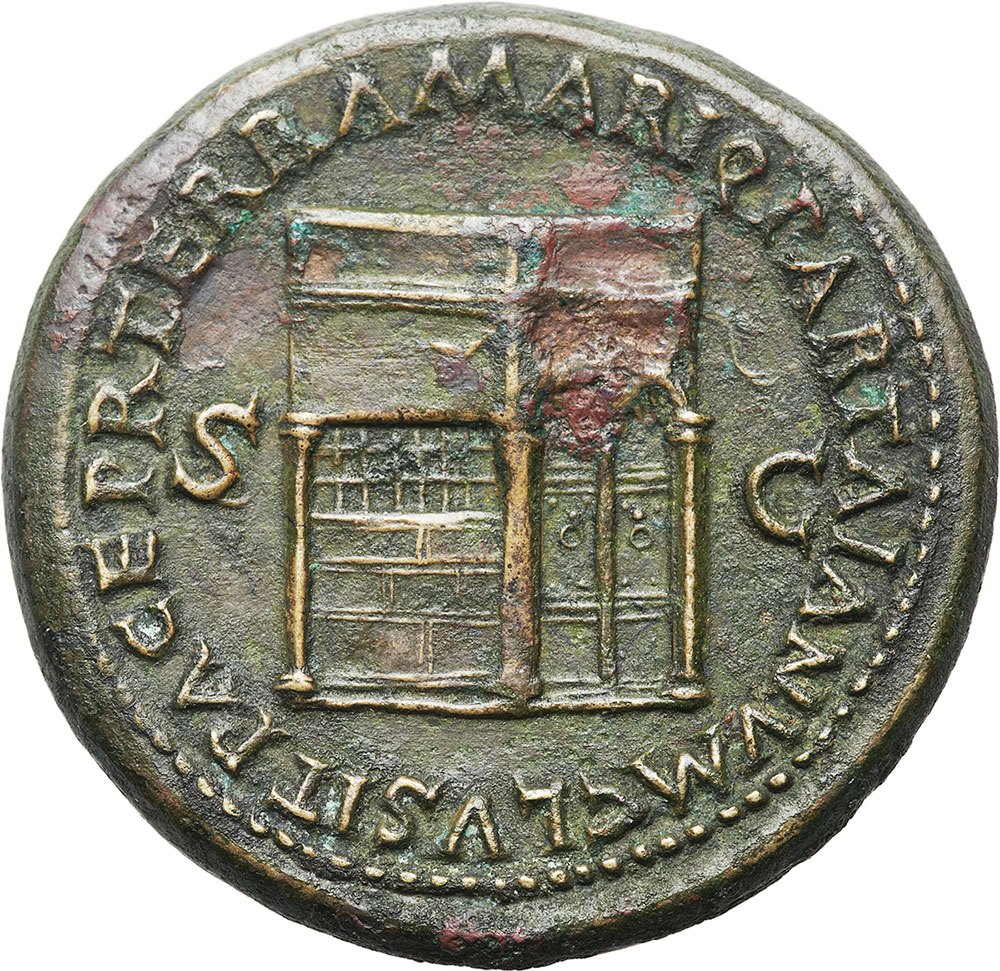Numa Pompilius
Numa Pompilius Selected king
After the death of Romulus, the Romans and Sabines (two tribes now living in the same city) competed to have one of their own number chosen king. During Romulus’ reign, Titus Tatius, a Sabine, had been elected king (here the Romans seemed to be employing a model similar to that of Sparta; 2 kings) along with Romulus. When he died, the Sabines agreed to be ruled solely by the Roman Romulus. Now, that Romulus was gone, they felt the Romans should reciprocate and allow a Sabine to ascend the throne, alone.
Numa Pompilius, whose first wife may have been Titus Tatius’ daughter, was living outside the city at the time. His first wife, Tatia, had died previously. Pompilius had a reputation as incorruptible and religious. He lived simply and humbly. It was at this time that it was said about Numa that he had not left Rome because he was despondent over the death of his wife, but rather to engage in a higher order of discourse; communing with the goddess Egeria.
When the representatives of the Senate approached Pompilius and offered him the crown, he initially refused. He had to be persuaded. And approval of the gods was sought.
Pompilius’ first act as king was to disband the king’s personal body guard, the Celeres. Then he began a series of calendrical and religious reforms.
Pompilius reforms the Roman calendar
The Roman year was divided into 10 months at this time. Pompilius added two more.
| 1 | Martius | 7 | Septembris |
| 2 | Aprilis | 8 | Octobris |
| 3 | Maius | 9 | Novembris |
| 4 | Iunius | 10 | Decembris |
| 5 | Quintilis | 11 | Ianuarius |
| 6 | Sextilis | 12 | Februarius |
- Initially the two additional months were at the end of the year; then they became the first two months of the year and March (Martius) became the third month
- Pompilius comes up with intercalary months for insertion every 24th year (because the months were lunar and therefore less than 30 days) and over time the months move out of alignment with the seasons
- Pompilius divided the days of the year into those that were auspicious and inauspicious, fasti, nefasti; those days that were favorable for transacting government, religious or economic business (fasti) and those days that were not favorable (nefasti)
Pompilius’ Religious Reforms
- Established a flamen (priest or sacrificer) for Jupiter and assigned to him a fine robe and a curule chair
- Forbade making images of the gods in the form of man or beast
- Imported Vestal priesthood from Alba
- Numa Pompilius imported the worship of Vesta (goddess of the hearth) from Alba Longa, mother city to Rome. Initially, 2 priestesses were nominated. They were exempt from marriage and child rearing so that they could focus on tending the sacred flame. It was believed that so long as the Vestals kept the sacred fire burning, Rome would be safe. Vestals were forbidden sexual congress (hence Vestal Virgins). Punishment for violating this taboo was terrible; being buried alive.
Plutarch. Plutarch: Lives of the noble Grecians and Romans (Kindle Locations 1743-1753). Kindle Edition.
- If the male who committed the sacrilege of sexual congress with a Vestal was captured, the punishment was death by flogging (If you want to experience a dramatization of a flogging see Mel Gibson’s The Passion.).
- Vestals were paid out of the public treasury. In later years, they occupied a house along with the Pontifex Maximus in the forum Romanum, near the base of the Palatine Hill. The circular temple of Vesta (where the sacred flame burned) was just off to the right of the House of Vestals if you’re facing the Palatine Hill.
- The term of service was for 30 years: the first ten of which they were to spend in learning their duties, the second ten in performing them, and the remaining ten in teaching and instructing others.
Plutarch. Plutarch: Lives of the noble Grecians and Romans (Kindle Locations 1732-1733). Kindle Edition.
Temple of Vesta as it looked during the Principate.
You can tell by the Hellenistic style of architecture; notice the Corinthian columns. It is reasonable to assume that a preceding series of buildings dating back to the earliest days of the city occupied this space. The Romans were always rebuilding and beautifying their public and religious buildings. This was often the result of fires, which were a frequent occurrence.
Temple of Vesta at Tivoli–ruin.
Illustration by Piranesi.
- Temple of Janus erected at the foot of the Argiletum; the god of beginnings and doorways.Janus is the two-faced Roman god who could see simultaneously into the future and into the past; responsible for doorways; but more important, he was the god of boundaries, beginnings and transitions. He was seen as providing motive force to all things, including the movements of the gods themselves. Consequently, Janus was seen as one of the most important as well as one of the oldest Roman gods. This was evidenced by the epithet pater (father). He was often invoked along with Jupiter and Quirinus.
Janus and doorways
Janus watched over all doorways, including the doors of heaven. The doorway to a Roman house, ianua, was named after Janus (ianus). When a woman married, she ritually spread wolf fat on the door posts of her home, propitiating Janus, ritually beginning a new phase of her life as matron of her husband’s household.
Bust of double-facing Janus.
This image is a posterized version of the sculpture in the Vatican Museum. Numa Pompilius named the first month of the year, Ianuarius, after Janus.
Temple of Janus
Named Janus Geminus (literally the double Janus), the temple stood in the Argiletum (a declivity between the Quirinal, Viminal and Oppian hills) next to the Subura district, just off the forum Romanum. When Rome was at war, the temple doors would be kept open. When there was peace, the doors would be closed. Tradition has it that Numa Pompilius had the doors of the temple closed because the city was at peace with its neighbors.
Reverse side of Neronian Sestertius–Temple of Janus.
Temple of Janus: built originally by Numa Pompilius. The temple depicted on the reverse side of this coin is from the time of the Emperor Nero. The temple was rebuilt numerous times as part of various building programs as well as the consequence of frequent fires. Notice the doors are closed. This means that the Roman state is at peace.
Pompilius divides the people into occupational guilds
- Pompilius divided people into guilds as a way of subverting tribal identification (Roman, Sabine) and unifying the state.
Plutarch. Plutarch: Lives of the noble Grecians and Romans (Kindle Locations 1860-1869). Kindle Edition.
Pompilius repeals the law that allows fathers to sell their children into slavery
- Numa was a compassionate man. Not only did he put Rome on a more religious footing, but he also tried to mitigate the warlike tendencies of the Roman people and alleviate the harshness of Roman custom and law by limiting the absolute power of patria potestas (power of the father). He repealed a father’s right to sell his children into slavery
The Rule of Pompilius–Summary
Pompilius enjoyed divine favor, especially that of Egeria and the muses. He claimed to have received a palladium (the sacred shield, ancile) from heaven. This was a physical object whose possession guaranteed the continued wellbeing of the city. He was given credit as a religious leader and a lawgiver, in the mode of a Lycurgus. He established various priestly colleges and commissioned the building of the Regia. He brought the Vestals to Rome. Even more important, he corrected the Roman lunar calendar, placing it on a more rational footing.
Pompilius was a great civilizer. Where Romulus relied on force and war, Pompilius emphasized self-control and the rule of law. He broadened Roman culture and provided a foundation beyond mere force going forward. It would be enough to sustain Roman civilization for another 2,000 years.




